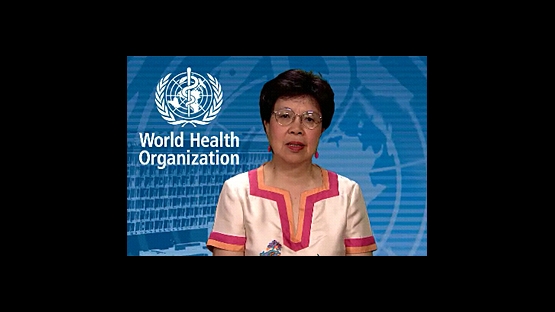The rise of cancer in the developing world is "an impending disaster," said Dr. Margaret Chan, the Director General of the World Health Organization (WHO), in her video keynote address to the IAEA´s Scientific Forum on 21 September 2010. The Scientific Forum is a gathering of senior public health policy-makers and cancer experts, meeting in Vienna for a two-day conference focusing on significantly improving cancer care in the developing world. "Cancer is a complex disease that must be tackled," Dr. Chan stated. "It must be tackled on multiple fronts by multiple partners."
The WHO estimates that seven of every ten cancer deaths now occur in the developing world, amounting to 5.5 million cancer deaths annually. Dr. Chan warned that if no action is taken, cancer deaths in the developing world will continue to grow rapidly, reaching nearly 9 million in 2030. In the same period, cancer deaths in wealthy countries are expected to remain fairly stable.
The scale of the cancer crisis in the developing world is "so huge" Dr. Chan explained, that "it is difficult to find the right way to measure it." The crisis cannot be adequately explained with statistics. "You also need to measure the problem in terms of needless suffering." The disease impoverishes the stricken and their families. Most developing nations´ "health systems are designed to cope with episodes of infectious disease," and now must bear costs for chronic cancer care that are "simply crippling."
Developing countries do not have the resources to support an effective response to the epidemic, lacking capacity "for prevention, public education, screening and early detection, diagnosis and treatment, whether involving surgery, radiotherapy or chemotherapy," she said. Underscoring the extent of the problem, Dr. Chan stated that the "IAEA has brought to world attention some 30 developing countries, including 15 in Africa, that do not possess even a single radiation therapy machine."
Dr. Chan thanked IAEA Director General, Yukiya Amano, for "making the problem of cancer in the developing world a high priority issue for the IAEA." With "unparalleled expertise in radiation medicine, a vital component of cancer diagnosis and treatment," the IAEA joined forces with the WHO and launched the Joint Programme on Cancer Control, focused on the needs of developing countries. She emphasized that the IAEA´s "Programme for Action for Cancer Therapy (PACT) launched in 2004 builds on a long collaboration between our two Agencies."
PACT´s approach "aligns well with the WHO´s emphasis on comprehensive national cancer control programmes," Dr. Chan also highlighted PACT´s effort to improve fundamental capacity for cancer care by ensuring that "investments and technologies for cancer diagnosis and treatment are part of a comprehensive national plan anchored in a wider strategy."
In its holistic approach, Dr. Chan said that the IAEA recognized that "technology means nothing without well-trained and motivated staff to use it." She also commended the IAEA´s work in innovative training and mentoring, as well as public-private partnerships with relevant industry, to bring international attention to the issue, generate resources and build collaboration to address "the vast unmet needs that compel us to take action."


